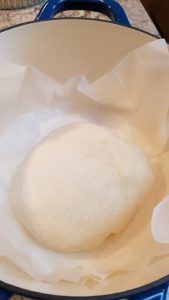This is the season of pumpkins, black cats, and superstitions, and that has me thinking about writers and their rituals. Not all of us have rituals, but many of us do, and we’re in good company.
Apparently, Charles Dickens had to arrange the ornaments on his desk in a certain way before he started writing. May Sarton cued up 18th-century music. Maya Angelou used the same writing ritual for years: she got up around five am, drove to a hotel, and was writing by 6:30. Longhand. On yellow pads. And she asked the staff to take everything off the walls so there was just her, the Bible, Roget’s Thesaurus, and some sherry. Isabelle Allende begins writing every new book on January 8th, a tradition that started in 1981 with a letter she wrote to her dying grandfather, a letter that sparked The House of Spirits.
Many writing rituals are more mundane. One author friend writes her first draft in longhand using a particular type of pen (she orders them in bulk). Another can’t write with shoes on her feet, only slippers. My ritual is an early morning walk, a check of email while I drink my first cup of coffee, and a glance at my ‘to do’ list. Then I’m ready to write. But I do like to have a sweater hanging on the back of my chair to pull around my shoulders when a chill (or insecurity) hits. The latter ritual goes back years to a hand-knit sweater my aunt gave me. Having it close was a reminder that someone had my back. It was a good feeling.
You might think I’m fussy or just plain weird, but there’s nothing weird or merely superstitious about rituals. Neuroscience tells us that rituals can increase confidence, reduce worry, and make it easier to get things done.
When we repeat behaviors, the neurons in our brains communicate together, wire together, and activate each other. If we do things fairly often in a similar sequence, our brains get used to that order and become more efficient at the task.
“It’s like developing friendships,” says Dr. Brian Christie, Professor of Neuroscience at the University of Victoria in British Columbia. “At first, the conversation is awkward and stilted, but as you become more comfortable and better friends, those conversations flow more easily. It’s the same with neurons. The neurons that fire together, wire together.”
That means if the neurons for writing are activated at the same time as you follow a specific routine – whether that’s pouring your first coffee of the day, pulling on a familiar sweater, or rearranging the things on your desk as Dickens did – they’re primed and ready to go. And the more regularly they fire together, the bigger, stronger, and more powerful they become.
I don’t know about you, but I can use all the help I can get. So, I’m off to check my email, glance at my ‘to do’ list, and get to work.














Comments